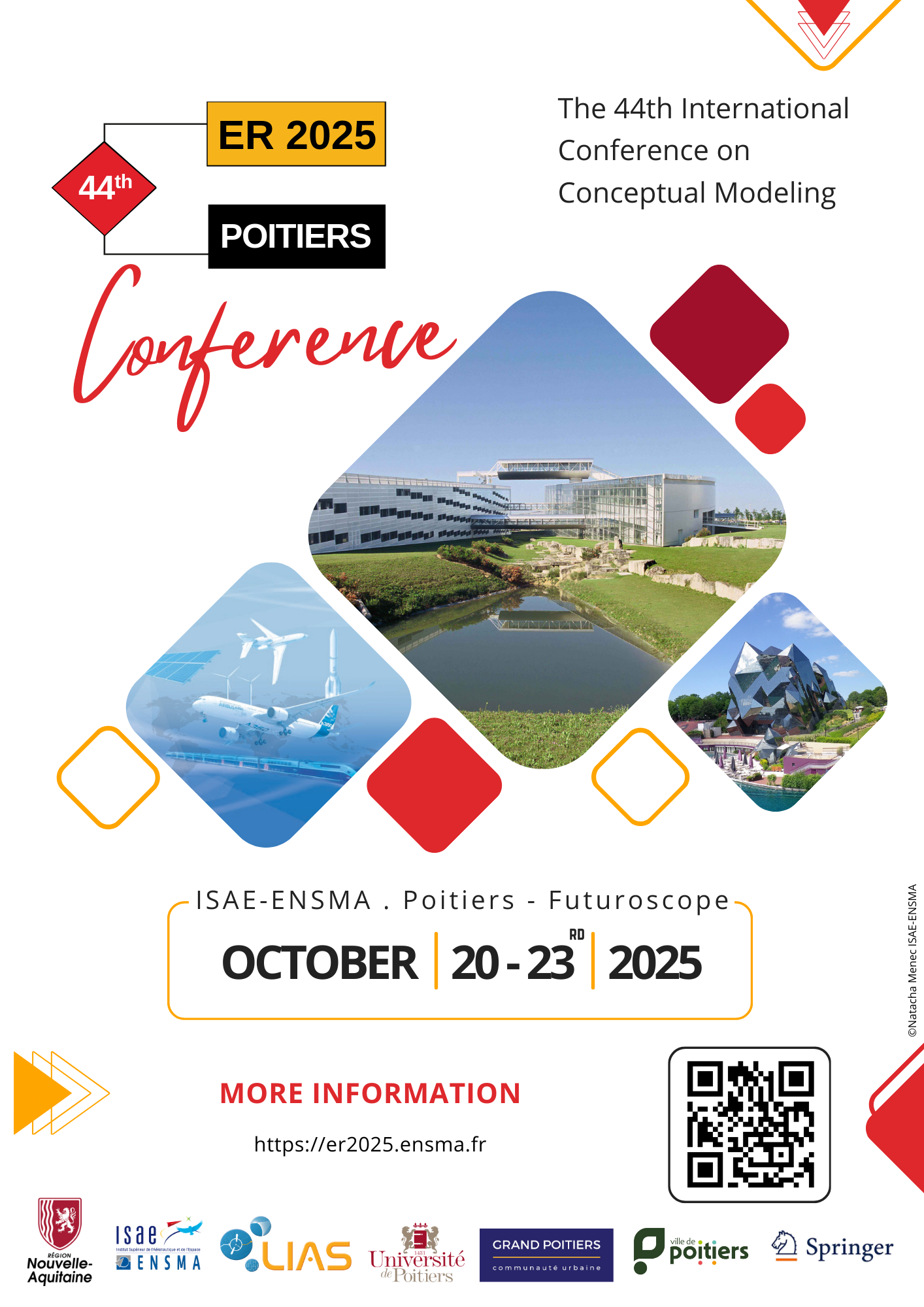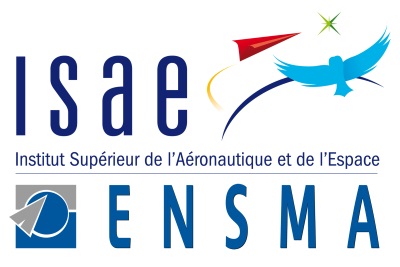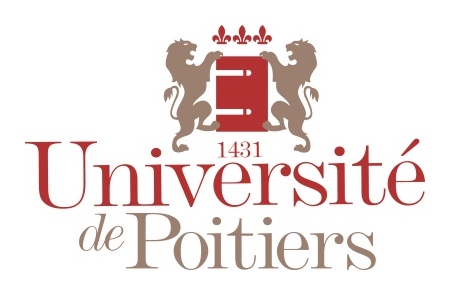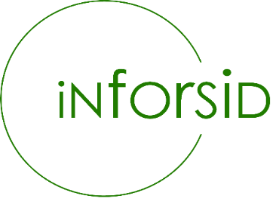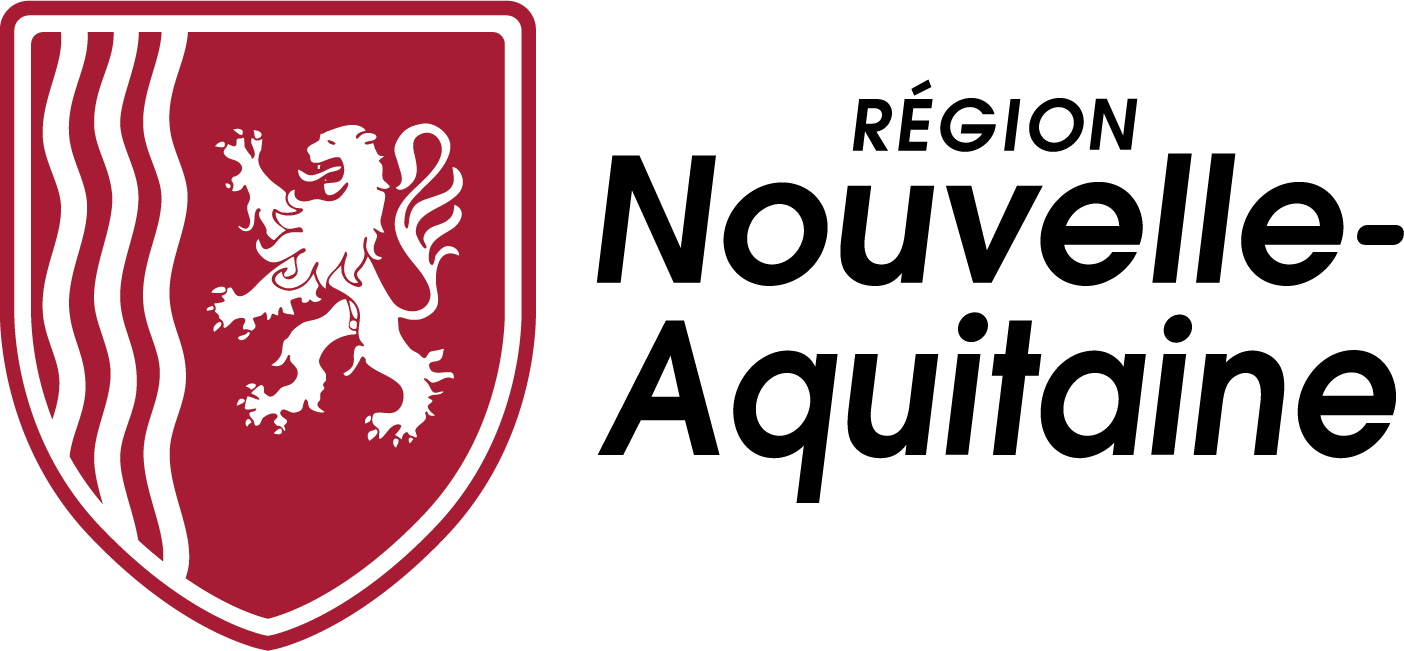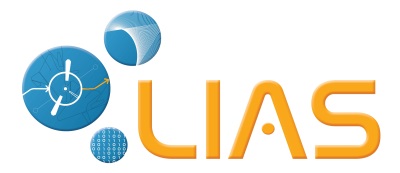
Program
Proceedings
The conference proceedings are available online:
- 44th International Conference, ER 2025, Poitiers, France, October 20–23, 2025, Proceedings: LNCS Volume 16189
- ER 2025 Workshops, FCM, CMLS, LLM4Modeling, OntoCom, and QUAMES, Poitiers, France, October 20–23, 2025, Proceedings: LNCS Volume 16190
Overview
8h00
9h00
9h30
11h00
11h30
13h00
14h30
15h30
16h00
16h30
18h00
18h30
19h00
22h00
23h00
Monday
Tuesday
Wednesday
Thursday
Workshops
3rd International Workshop Modeling in the Age of Large Language Models (LLM4Modeling)
- Monday, October 20 from 09:30 to 11:00 Hans-Georg Fill, Peter Fettke and Julius Köpke A106
In the 3rd International Workshop "Modeling in the Age of Large Language Models" (LLM4Modeling) we aim to foster the discussion of innovative approaches for the use of large language models in conceptual modeling. This includes for example the use of generative AI and agentic AI for creating, analyzing, executing, and interpreting conceptual models, evaluation strategies in this context, the use of LLMs in teaching conceptual modeling, the integration of LLMs and agents, or the embedding of LLMs in modeling tools.
-
Vibe Modeling: Challenges and Opportunities
-
Model Deepening with Large Language Models: Insights from Exploratory Studies with ChatGPT
-
From ConOps to an Operational Domain Model: Harnessing LLMs for Conceptual Model Design
-
Towards diagram-based data model generation with LLMs
Fundamentals of Conceptual Modeling (FCM)
- Monday, October 20 from 09:30 to 13:00 Heinrich C. Mayr, Steve Liddle, Oscar Pastor, Veda C. Storey and Bernhard Thalheim A201
FCM'2025 aims to bring together members of the ER community who are interested in and working on the philosophical, theoretical, epistemological and practical fundamentals of conceptual modeling. In doing so, we want to continue and strengthen recent initiatives, which have dealt with theory and methodology of modeling in the context of the development of complex digital ecosystems. FCM'2025 is designed as a real workshop, where in addition to the presentation of current research, sessions are planned for the joint development of a work program to create the desired theory and methodology.
-
Logical Foundations of Conceptual Modelling for Relational and {SQL} Databases - an introduction
-
Disentangling the schema turn: Restoring the information base to conceptual modelling
-
Representing Autopoiesis and Scanning the Environment in Fractal Enterprise Model
-
Towards a fundamental theory of modeling discrete systems. Position statement
-
Towards Specifying "Model". Position statement
11th International Workshop on Ontologies and Conceptual Modeling (OntoCom)
- Monday, October 20 from 11:30 to 16:00 Sergio de Cesare, Frederik Gailly, Giancarlo Guizzardi, Chris Partridge and Oscar Pastor A106
The International Workshop on Ontologies and Conceptual Modeling (OntoCom) focuses on the practical and formal application of ontologies to conceptual modeling. The importance of conceptual modeling has grown over the years, and it is now common to find examples of conceptual models being developed and used in various disciplines unrelated to computing, including biology, business, construction, and engineering. Among the reasons for this disciplinary expansion is also the increasing digitalisation of all aspects of modern life, as well as the increased complexity that such digitalisation entails in terms of emerging needs and requirements. The natural consequence is a proliferation of conceptual models of multiple real-world domains, which sooner or later, require data and systems to interoperate and/or integrate. In this emerging scenario, ontology-driven conceptual modeling becomes even more fundamental to modern life due to its intrinsic ability to represent reality in a theoretically and semantically consistent manner. Foundational (or top-level ontologies) have the potential to resolve the difficult problems that derive from a lack of a consistent and sound ontological theory. The benefits that can derive from the application of a foundational ontology include improved mapping to the real-world domain, increased level of communication and understanding among stakeholders, model reuse, semantic integration and interoperability and increased overall efficiency and effectiveness of information systems development and evolution. The application of foundational ontologies can also assist in overcoming the inscrutable nature of most mainstream artificial intelligence methods (e.g., neural networks and machine learning). We intend to bring together academics, researchers, and practitioners (with a background in IS engineering and/or ontology development) to develop an agenda for future collaborations that combine research and industrial expertise.
https://ontocomworkshops.github.io/OntoCom2025/
-
Introduction to the Workshop
-
Unpacking Trust: An Ontological Framework for Information Trustworthiness in Decision-Making
-
Towards rationalizing the value of modeling
-
Keynote talk: Ontology Engineering as a Tradecraft
-
Panel on Metholodogies and Tools for Ontology-Driven Conceptual Modeling
6th International Workshop on Quality and Measurement of Model-Driven Software Development (QUAMES)
- Monday, October 20 from 09:30 to 13:00 Beatriz Marín, Clara Ayora and Marcela Ruiz A202
In Model-Driven Software Development (MDD), the quality of conceptual models is critical because it directly affects software quality. Evaluating these models helps predict software characteristics, supports cost estimation, and aids project management by shifting effort from programming to modelling. In addition, testing models is essential for assessing quality metrics such as coverage and defect rates. Furthermore, with the growing role of AI in software development, conceptual models can promote trust in AI-generated systems. Similarly, low-code and no-code platforms rely on models for explicability. QUAMES workshop aims to attract research on methods, procedures, techniques, and tools for measuring and evaluating the quality of conceptual models that can be used at any stage of the software development cycle. Its main objective is to enable the development of high-quality software systems by promoting quality assurance from a modelling-based perspective and by exploring the challenges, benefits and lessons learned from conceptual modelling in AI-generated software.
-
Towards Model-Driven Testing for Assuring the Quality of Large Language Models
-
Prompt-Guided Evaluation of GPT-4o, Gemini and DeepSeek on UML-to-Java Code Generation
-
Interactive activity: testing models using the Model Defenders game
6th International Workshop on Conceptual Modeling for Life Sciences (CMLS)
- Monday, October 20 from 11:30 to 13:00 Alberto García S., Nelly Barret, Anna Bernasconi and José Reye A108
The sixth edition of the Conceptual Modeling for Life Sciences (CMLS) workshop provides an important forum for experts in Information Systems, Conceptual Modeling, Data Management, and Artificial Intelligence to address emerging healthcare and life sciences challenges. With a specialized focus on Genomic Data Management and Precision Medicine, CMLS 2025 welcomes researchers and practitioners to explore novel techniques for translating genetic insights into personalized healthcare treatments. The workshop incorporates a wide range of research methodologies, from AI-powered decision support systems and large language models to ontological frameworks and healthcare process modeling, to provide a forum for multidisciplinary experts to explore these practical solutions for high-quality, efficient healthcare delivery.
-
Keynote talk: Beyond FAIR assessment black boxes: ontology-based evaluations and the challenge of comparing FAIR scores
-
A conceptual model for discovering implicit temporal knowledge in clinical data
Tutorials
Multi-Level Modeling and Language Engineering Promoting Reuse, Integrity, and Flexibility of Languages, Models and Software Systems - Ulrich Frank and Tony Clark
- Monday, October 20 from 9:30 to 11:30 A101
Abstract: This tutorial offers an introduction to multi-level modeling and corresponding multi-level language architectures. They make it possible to solve serious problems of traditional modeling and programming languages that are limited to two levels. The additional abstraction they provide not only promotes the reusability, integrity and adaptability of languages, models and software systems, but also allows for new software architectures that feature a common representation of models and programs. Users of these systems are empowered to navigate the conceptual foundation of the software they use at runtime, and if needed, adapt it to changing requirements. The multi-level language architecture and corresponding modeling methods that are subject of the tutorial have been developed over the last fifteen years within the project "Language Engineering for Multi-Level Modeling", LE4MM (https://www.le4mm.org), with roots going back to the ninities of last century.
Discover Discovery Rules for your Modeling Language - Ilia Bider
- Monday, October 20 from 14:30 to 16:00 A102
Abstract: The tutorial will introduce a new concept – discovery power – that can be used to characterize an enterprise modeling language. The concept is different from, but connected to, the concept of expressive power. The concept is defined as "the degree of help provided by the structure of an enterprise modeling language to expand a partly built model or fill gaps in it". The concept is realized by discovery rules that are different for different modeling languages.
When Entity/Relationship Models Meet Graph Databases - Philipp Skavantzos and Sebastian Link
- Monday, October 20 from 14:30 to 18:30 A101
Abstract: This tutorial shows how traditional Entity/Relationship modeling and modern graph data modeling can be combined to bring forward well-designed graph data models that process workloads and maintain data integrity efficiently.
Keynotes
Heinrich Christian Mayr
- Tuesday, October 21 from 9:30 to 11:00 Dominik Bork A101
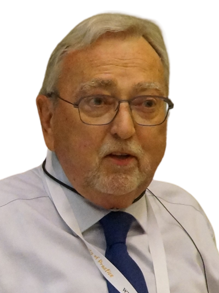
Heinrich C. Mayr has been Full Professor of Informatics at the Universität Klagenfurt since 1990. Until then he was researcher at the Universität Karlsruhe (today: KIT), visiting professor at several universities and managing director of a German software company. His research is documented in more than 250 publications and includes methods of information system design, domain specific modeling languages, requirements modeling as well as knowledge management. Among other things, he held the position of President of the German Gesellschaft für Informatik (GI) and Vice-President of the Council of European Professional Informatics Societies (CEPIS). He was rector of his university for 6 years. For 20 years he was editor-in-chief of the "Lecture Notes in Informatics (LNI)", and he was chairman of the council of the Software Internet Cluster SIC. He has been a member of the ER steering committee since 2006, of which he was Chairman from 2016 to 2018. He served as well in the steering committee of the International Conference on ICT in Education, Research and Industrial Application (ICTERI), which he helped to set up, and in the steering committees of various GI SIGs. Also, he is a board member of the "Kärntner Beteiligungsverwaltung" and of the Carinthian Airport Operating Company. Among other distinctions, Heinrich C. Mayr is a GI Fellow, ER Fellow and Peter P. Chen Award Laureate 2024.
Title: A Modeler’s Trials and Tribulations Defeats, Successes and Open Issues
Abstract: It is undisputed that modeling is an essential part of the development of systems and thus also of information systems. Programming in particular is a modeling discipline, because computer programs are nothing more than prescriptive models of processes. The body of knowledge on modeling is rich and difficult to grasp. First attempts to provide access to this jungle propose a systematic characterization of research contributions along a taxonomy and supported by LLM-based tools. The focus is on “conceptual modeling,” which has been explicitly discussed and researched since the 1970s. Despite decades of effort, however, there is still no generally accepted theory of conceptual modeling and hardly any standards. We even lack a community agreement on the definition of what a concept model is, although there are a number of proposals, some of which are even frequently cited. Regardless of this, many methods, modeling languages, and tools for conceptual modeling and model-based systems engineering were introduced, highly praised, and then forgotten. Most of them came with the aim of providing support in system development, business process design, and complex data management. Measured against this objective, the results of all efforts are sobering, at least as far as small and medium-sized development companies are concerned. For them, modeling usually consists of drawing diagrams, recently with the help of LLM-based tools. Many developers struggle with the abstraction that comes with modeling, and managers are put off by the time required, “which the customer does not pay for”. This stands in sharp contrast to other engineering disciplines, where development without systematic modeling is unthinkable. Since the early 1970s, I have been involved in research and practice in (conceptual) modeling, sometimes successfully, sometimes with dismal failures. In this keynote speech, I will report on some earlier and some more recent findings and experiences and take the liberty of making recommendations for future work in our field. This includes discussing fundamental principles (in particular the concept of model), specifying the meaning of models, deepening the understanding of abstraction, and more1. 1 Interested readers are referred to further reading listed at https://aeainf.aau.at/heinrich-mayr-2
Ron Weber
- Wednesday, October 22 from 9:30 to 11:00 Dominik Bork A101
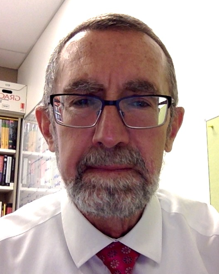
Ron Weber is an emeritus professor at Monash University and The University of Queensland. From 2014-2018, he was a part-time professor, The University of Queensland. In 2013, he was Pro Vice-Chancellor and Campus President of Monash South Africa. From 2004 until 2012, he was Dean of the Faculty of Information Technology at Monash University. Prior to joining Monash University, he was Professor of Information Systems in the School of Business and Research Director for the Faculty of Business, Economics and Law at The University of Queensland. His tenure at The University of Queensland was from 1979 until 2013. Ron is a past president of the Accounting and Finance Association of Australia and New Zealand and the Association for Information Systems. He is also a Fellow of the Australian Computer Society, Chartered Accountants Australia and New Zealand, CPA Australia, the Association for Information Systems, and the Academy of the Social Sciences in Australia. In 2002, he was awarded life-membership of the Accounting and Finance Association of Australia and New Zealand, and in 2016 he was awarded life membership of the international Association for Information Systems. In 1994, Ron won one of four Silver Jubilee Awards given worldwide by the Information Systems Audit and Control Association for contributions to the discipline of information systems control and audit. In 2000, he received the Accounting and Finance Association of Australia and New Zealand’s inaugural Outstanding Educator Award and the Notable Contributions to the Accounting Literature Award. In 2000, he also won the Australian Prime Minister's Award for University Teacher of the Year. From 2002-2004, Ron was Editor-in-Chief of the MIS Quarterly. In 2011, he received the Association for Information Systems’ Leo Award. In 2018, he was inducted into the Australian Accounting Hall of Fame. In the June 2024 King’s Birthday Honours List, he was appointed as a Member of the Order of Australia (AM) for services to tertiary education, accounting and information systems development, and professional associations. In 2025, he received the Association for Information Systems, Special Interest Group on Systems Analysis and Design’s Outstanding Contribution Award.
Title: Some Implications of Agential Realism for Conceptual Modeling
Abstract: Agential realism is a highly cited, iconoclastic philosophy proposed by Karen Barad about the nature of the world. It has roots in quantum theory, science and technology studies, and feminist studies. It conceives ontology, epistemology, and ethics as intertwined, entangled, mutually implicated, co-constituted fields. Accordingly, it is a philosophy that Barad characterizes as a singular, unitary ethico-onto-epistemology. In many ways, agential realism differs substantially from the philosophies that are often used, either explicitly or implicitly, to inform conceptual modeling research and practice. In this light, I will consider five challenges that agential realism poses for some widely held views of conceptual modeling. The first is that agential realism eschews the notion that an independent reality exists and that this reality can be discovered. The second is that it rejects the notion that a faithful representation (model) of reality can be constructed. The third is that our understanding of what is meant by “context” when we build a conceptual model is likely to be impoverished. The fourth is that we, as conceptual modelers, are unlikely to have an adequate understanding of the ways in which we are entangled in the material-discursive practices that lead to the development of a conceptual model. The fifth is that we, as conceptual modelers, are unlikely to have a sufficient grasp of the ethical implications of and the locus of the responsibilities and accountabilities associated with the conceptual models we develop. I will discuss the nature of these challenges, their implications for conceptual modeling, and how we might address them in our research and practice. Hopefully, the merits (or lack thereof) of an agential-realism framing of conceptual modeling can then be better assessed.
Christine Legner
- Thursday, October 23 from 9:30 to 11:00 Shazia Sadiq A101
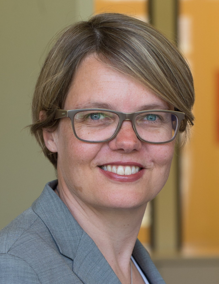
Christine Legner is a Professor of Information Systems at the Faculty of Business and Economics (HEC), University of Lausanne. Her expertise lies in data management, enterprise architecture and business software. She is a Research Fellow at the MIT Center for Information Systems Research (CISR) and the co-founder and academic director of the Competence Centers Corporate Data Quality (CC CDQ), an industry-funded research consortium and expert community of 20 Fortune 500 companies, including AXA, BASF, Bayer, Bosch, Merck, Nestlé, Schaeffler, SAP, and Siemens. In the CC CDQ, she and her research team collaborate with industry experts to develop concepts, tools and methods that advance data management. Christine has published more than 150 peer-reviewed articles in academic journals and conferences, including the Journal of Management Information Systems, Journal of the AIS, Journal of Strategic Information Systems, Information Systems Journal, Business & Information Systems Engineering and Harvard Business Review. She is co-editor of a book on Strategic Enterprise Architecture Management and has co-authored eBooks on data-related topics (“data strategy”, “data value formula” and “data catalogs”). Christine holds a post-doctoral qualification and doctorate in information systems from the University of St. Gallen, a Master’s degree in Economics from Université Paris–Dauphine, and a Master’s degree in Industrial Engineering from the Karlsruhe Institute of Technology (KIT).
Title: The bumpy road of data and AI transformation - How conceptual models help address wicked problems?
Abstract: Despite soaring investments, most organizations have yet to embed data and AI at the core of their business. Transforming an organization’s approach to data and AI is fraught with “wicked problems” that are complex, ill-defined, and involve multiple stakeholders with diverging interests. Drawing on two decades of research at the Competence Center Corporate Data Quality (CC CDQ), this presentation illustrates how conceptual models can help address these challenges: (1) capability and maturity models to guide transformation journeys, (2) metadata and semantic models to foster transparency and trust, (3) canvases to collaboratively design AI-based solutions, and (4) reference architectures to shape modern enterprise data platforms. Although still underused, conceptual models offer effective means of enabling organizations to become truly data- and AI-driven.
ER Papers
ER Papers 1: Modeling for Safeguarding
- Tuesday, October 21 from 11:30 to 12:00 Bernhard Thalheim A101
-
11:30 - 12:00: Interactive repair of inconsistencies in conceptual models
-
12:00 - 12:30: Rethinking Learning: The Role of Unlearning in Generative AI-Based Conceptual Modeling
-
12:30 - 13:00: ModelFed: a Federated Protocol for Collaborative Cross-Platform Modeling
ER Papers 2: Ontological Modeling
- Tuesday, October 21 from 11:30 to 13:00 Jolita Ralyté A102
-
11:30 - 12:00: Group modelling as discourse: games, play, ontologies and the emergence of shared understandings
-
12:00 - 12:30: Creon: A Capability Reference Ontology for the Analysis and Design of System Capabilities
-
12:30 - 12:45 (Journal First): Unraveling the pain points of domain modeling
ER Papers 3: LLM-enabled Modeling
- Tuesday, October 21 from 14:30 to 16:00 Stephen Liddle A101
-
14:30 - 15:00: Towards Human-in-the-Loop LLM-Enabled Domain Modeling
-
15:00 - 15:30: Towards Threat Modeling with Large Language Models - Automating Domain-Specific Language Creation in Meta Attack Language (MAL)
-
15:30 - 16:00: Text-to-MDX: LLM-Assisted Generation of MDX Queries from User Questions
ER Papers 4: Data and Process Modeling 1
- Tuesday, October 21 from 14:30 to 16:00 Peter Fettke A102
-
14:30 - 15:00: Tree-based Compliance Verification: Bridging the Gap between Compliance Requirements and Process Execution
-
15:00 - 15:30: Detecting Conflicting Object Views in Object-Centric Process Choreographies
-
15:30 - 16:00: To bind or not to bind? Replaying Object-centric Processes under stable Relationships
ER Papers 5: Knowledge Graphs and Graph Databases
- Wednesday, October 22 from 11:30 to 13:00 João Paulo A. Almeida A101
-
11:30 - 12:00: Shaping Your World – Conceptualizing Viewpoint Dynamics in Event-Centric Knowledge Graphs
-
12:00 - 12:30: Comparative Experimentation with Natural Language Querying of Knowledge Graphs based on the Microsoft Graph RAG Approach
-
12:30 - 13:00: Model-driven Schema Transformation for Graph Databases
ER Papers 6: Data and Process Modeling 2
- Wednesday, October 22 from 14:30 to 16:15 Enrico Franconi A101
-
14:30 - 15:00: Discovering Inclusion Dependencies in a Multi-Model Scenario
-
15:00 - 15:30: Possibilistic SQL Constraints
-
15:30 - 16:00: Enriching Ontology-based Data Management with Multidimensional Modeling
-
16:00 - 16:15 (Journal First): An extension of iStar for Machine Learning requirements by following the PRISE methodology
ER Papers 7: Applications of Conceptual Modeling 1
- Thursday, October 23 from 11:30 to 13:00 Sergio de Cesare A101
-
11:30 - 12:00: Ontology-informed Design of Legal Visualizations
-
12:00 - 12:30: Conceptual Modeling of disinformation campaigns
-
12:30 - 13:00: Ontology for Personalized Recipe Recommendations Supporting Sustainability, Personal Preferences, and Health Restrictions
ER Papers 8: Applications of Conceptual Modeling 2
- Thursday, October 23 from 14:30 to 15:30 Wolfgang Maass A101
-
14:30 - 15:00: OntoInsight - A Metric-Guided Tool for Ontology Quality Evaluation with LLM-Powered Recommendations
-
15:00 - 15:30: Towards Automating the Life Cycle Management of Digital Twins
Doctoral Consortium
- Monday, October 20 from 14:30 to 18:00 João Paulo A. Almeida, Isabelle Comyn-Wattiau and Geert Poels A202
Each presentation is allocated 20 minutes for the PhD candidate's talk, followed by 25 minutes of dedicated discussion and exchange.
-
14:30 - 15:15: From Text to Triples: Large Language Models for Ontology-Aligned Annotation in Archaeology
-
15:15 - 16:00: A Conceptual Modeling Framework for Trustworthy, Style-Aware Automation in Patent Drafting
-
16:30 - 17:15: Towards an Advanced Entity Resolution in Data Lakes
-
17:15 - 18:00: Design Science Contributions to the LLM-based Augmentation of the BPM Lifecycle Using Metamodel-based Knowledge Graphs as Domain-specific Context Mediators
Posters and Demos
- Wednesday, October 22 from 16:30 to 18:00 Jeffrey Parsons and Hui Ma A106
-
LLM-Powered Visualizations and Narratives from Natural Language Queries
-
Domain Ontology of a PhD Program
-
LLM-Based Modeling Assistance for Textual Ontology-Driven Conceptual Modeling
-
LLM4BPMNGen: A Tool for BPMN Generation with LLMs
-
CLD-Explorer: toward a tool for Causal Loop Diagrams analytics
-
Towards an LLM-based Tool for Automated Database Design
Industrial Track
- Wednesday, October 22 from 16:30 to 18:30 Thomas Polacsek A101
Accepted papers
-
An Ontology Metamodel for Knowledge-Centric Systems Engineering in Practice
-
Multi-driven and LLM-assisted Analytical Modeling: Evaluation in an Industrial Case
Presentation only (no paper)
-
The rasdaman Array DBMS: Call Me Datacube
-
Call for a new Ontology Modelling langage
SCME 2025
- Monday, October 20 from 14:30 to 16:00 Jolita Ralyté and Stephen W. Liddle A201
-
14:30 - 15:00: Towards Towards Holistic Conceptual Modeling Education: Experience Report on Course Redesigns
-
15:00 - 15:30: What Works in MDE teaching? Insights from Students’ Perspectives
-
15:30 - 16:00: Class Exercises for Teaching Database Management in the GenAI Era
ER Panel: Building Trust Through Conceptual Modelling
- Tuesday, October 21 from 16:30 to 18:30 Shazia Sadiq A101
The ER25 Panel will be focussed on this year’s conference theme: Building Trust Through Conceptual Modeling. The panel promises a dynamic and thought-provoking discussion on the evolving role of conceptual modeling in fostering trust in increasingly complex, autonomous and opaque digital ecosystems. The panel will explore how modeling frameworks can uphold the critical imperatives of transparency, inclusivity, and ethical standards, and attendees can expect to gain fresh insights into how foundational modeling principles can adapt to contemporary challenges and contribute to trustworthy technology platforms and systems.
Speakers: João Paulo Almeida, Jolita Ralyte, Ron Weber, Carson Woo
Project Exhibition
- Thursday, October 23 from 11:30 to 13:00 Maribel Yasmina Santos and Greta Adamo A102
-
11:30 - 12:00: CoMoDID: Combining Explainable Artificial Intelligence and Conceptual Modeling for Data Intensive-Domains Management
-
12:00 - 12:30: Business Architecture Copilot
Journal First
- Tuesday, October 21 from 12:30 to 13:00 Giancarlo Guizzardi and Beatriz Marín A102
-
12:30 - 12:45: An extension of iStar for Machine Learning requirements by following the PRISE methodology
-
12:45 - 13:00: Unraveling the pain points of domain modeling
ER Forum
- Wednesday, October 22 from 11:30 to 16:00 Stéphane Jean A102 & A107
-
11:30 - 11:40: The Role of Conceptual Modeling in Explainable AI: A Legal Domain Case Study
-
11:40 - 11:50: A Conceptual Model for Data Analysis Highlights
-
11:50 - 12:00: Empowering Systemic Design with Causal Loop Diagrams Formalization and Analytics
-
12:00 - 12:10: Towards AI-Powered Multi-Modal Generative OLAP
-
12:10 - 12:20: A Catalog of BPMN Extensions
-
12:20 - 12:30: Goal-Oriented Data Storytelling from User Requirements: An LLM-Assisted Method for Industrial Analytics
-
12:30 - 12:40: A Framework for LLM-Based Conceptual Modeling: Application to BPMN Collaborations
-
14:30 - 14:40: An Ontological Conceptual Model for Structuring Multimodal User Behavior in Virtual Reality
-
14:40 - 14:50: Taxonomy for Early Safety Analysis of Human-Robot Interaction and Human-Robot Collaboration
-
14:50 - 15:00: ROMY: Risk-Optimized Mobility through Graph-Based Prediction
-
15:00 - 15:10: Digital Twins in Manufacturing and the Use of Models
-
15:10 - 15:20: Towards a complex view of disease: A conceptual modeling perspective
-
15:20 - 15:30: Personas for Model-based Testing
-
15:30 - 15:40: PRAOS: A Process to Support KAOS Extensions
-
15:40 - 15:50: Refining Core Ontologies Through Executable Transformation
Addtional Information
Welcome Registration
When you arrive at ISAE-ENSMA, enter through its main entrance, then head to the conference registration desk nearby. We will provide you with a nametag and a conference bag including goodies. For the safety of everyone, please wear your nametag during the whole conference and related events.
Please feel free to contact any ER 2025 staff member for additional information. There will be a person at the registration desk throughout the conference.
Coffee Break
Coffee breaks will be served at the ground level of the conference building. Coffee, tea, orange juice and pastries will be available during breaks.
Lunch Break
Conference lunches will be served at the Plaza Hotel. The Plaza is a five minutes walk from the conference building. At the end of morning sessions at 13:00, conference staff will guide participants to the hotel lunch room.

Welcome Reception
A welcome dinner will be served on the ground floor of the conference building at ISAE-ENSMA on Monday, October 20, starting at 6:30 p.m.
Tickets for the Futuroscope have been reserved for the conference participants. They will be handed out at the welcome registration desk. These tickets are valid only on Tuesday, October 21, between 17:00 and 22:00. You will be able to enjoy the attractions and the evening show. Please note that meals are not included in this reservation.

Get more information about Futuroscope: www.futuroscope.com
The conference dinner will take place at the Château de Dissay, on Wednesday, October 22.
We invite participants to gather at the entrance hall of ISAE-ENSMA at 18:30 for a departure by bus no later than 18:45. There will be only one trip. The bus will take participants back to ISAE-ENSMA at about 23:00.

Get more information about Château de Dissay: chateaudedissay.com

